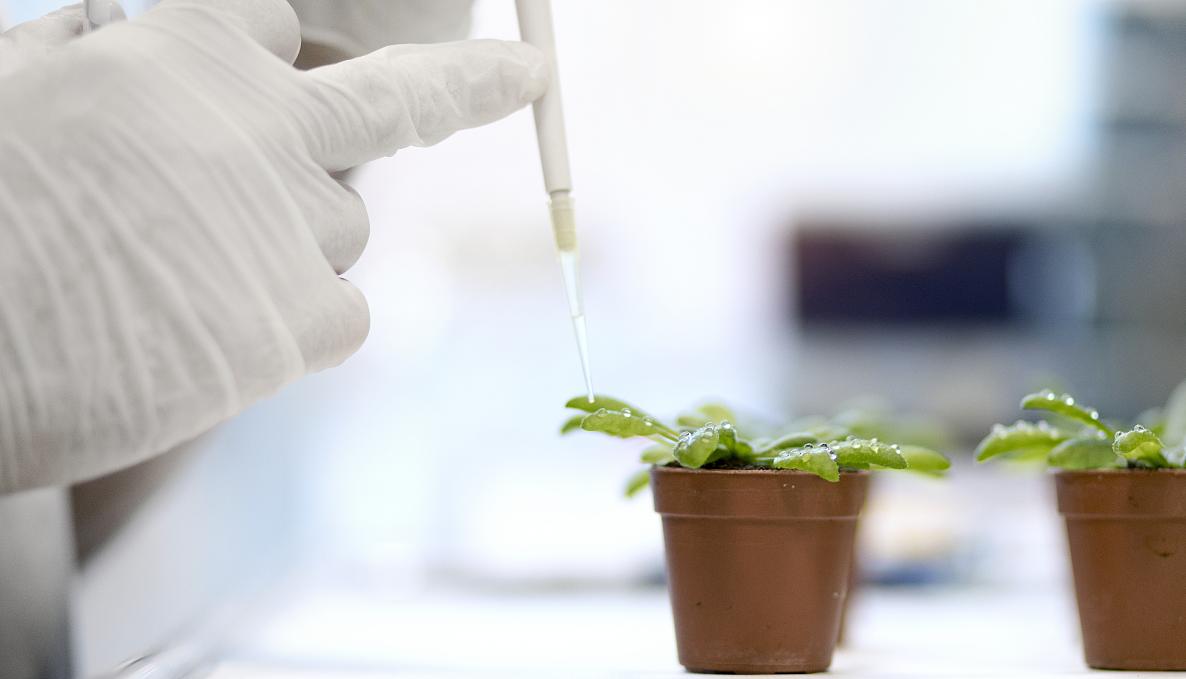Iodine is essential for plants, the discovery opens up new applications to increase agricultural production. The study published by the PlantLab Laboratory of the Sant'Anna Institute of Life Sciences supported by SQM

Iodine is a fundamental element for human health, it is essential for the proper functioning of the thyroid and, in particular, for the production of thyroid hormones. However, it was not known whether iodine was a necessary element for the physiology of plants, like other microelements such as iron, magnesium and many others. In a recent research, published in the international journal “Frontiers in Plant Science”, a team of researchers from the PlantLab Laboratory of the Institute of Life Sciences of the Sant'Anna School, in collaboration with the Institute of Clinical Physiology of the CNR of Pisa and with the Institute for the animal production system in the Mediterranean environment of the CNR of Naples, has shown that iodine is also necessary for plants. This is a discovery that opens up new applications for an increase in agricultural production.
Thanks to an integrated experimental approach involving researchers with specialized skills, it has been shown that plants require iodine for correct flowering, for greater seed production, for increased biomass and for efficient photosynthesis (the process of converting sunlight into chemical energy). Of great importance is the discovery of iodinated proteins, namely proteins that bind iodine, which then becomes an integral part of plant proteins. A discovery that has never happened before in the world of plant biology. The 82 identified proteins are involved in various processes such as the activation of an early warning system that defends the plant from damage from abiotic and biotic stress.
“The PlantLab laboratory, at the Institute of Life Sciences of the Sant'Anna School (Scuola Superiore Sant'Anna) in Pisa, has been actively conducting research on iodine for about twenty years”, underlines Pierdomenico Perata, professor of Plant Physiology and head of the PlantLab. “Recently we have discovered and studied various physiological mechanisms linked to the presence of iodine in plants, with the aim of increasing the nutritional value of crops. Iodine is in fact an essential element for human health, necessary for thyroid function. However, iodine was not considered necessary for the life of plants. With this study - continues Pierdomenico Perata - we have shown that iodine has a beneficial effect on plants, even if used in very small quantities. Furthermore, we demonstrated the presence of iodine in plant proteins. Iodine therefore behaves like various micronutrients essential for the growth and development of plants ”.
Iodine is present everywhere, but only in small quantities. Most agricultural land and irrigation water contain very low concentrations of iodine which therefore is often not assimilable by plants. It is conceivable that a lack of iodine in plants causes yield losses, similar to the lack of any other micronutrient.
The research was financially supported by SQM, an international company with a long history in the production and marketing of fertilizers extracted in the Atacama Desert in Chile. For optimum crop production, iodine must be supplied to crops at the right dosage. “Since the beginning of this century, SQM has been dedicated to research on agronomic bio-fortification with iodine”, adds Harmen Tjalling Holwerda, senior director business development nitrates and potassium business unit at SQM and co-author of the publication. “During the studies, we noticed that iodine exerted its beneficial effects in very low concentrations: clear evidence that iodine can be counted among the micronutrients of plants. SQM has always been committed to advancing knowledge on mineral fertilizers and it is for this reason that we have decided to support the research of the Sant’Anna School”.
Publication references
Front. Plant Sci. | doi: 10.3389 / fpls.2021.616868



